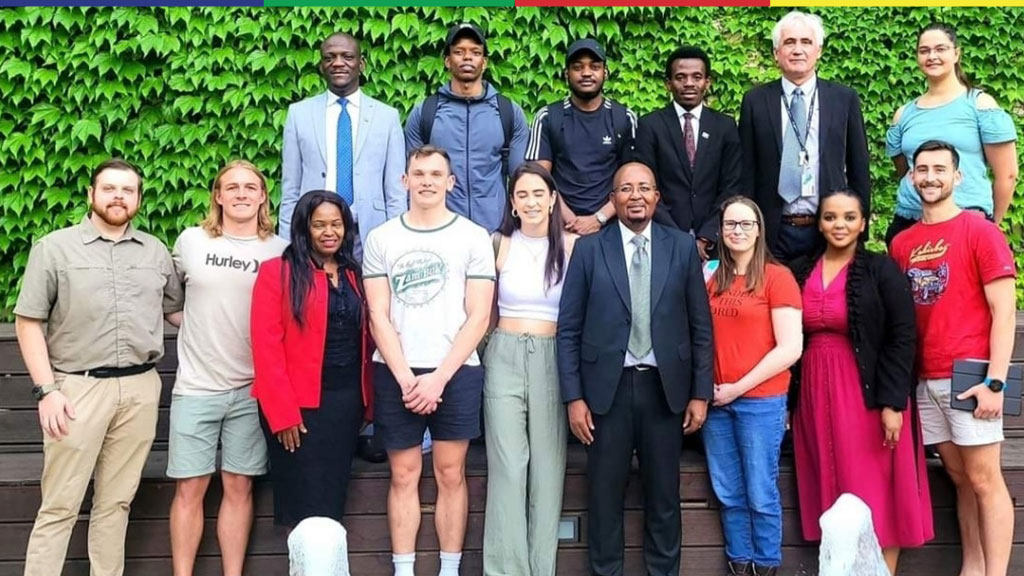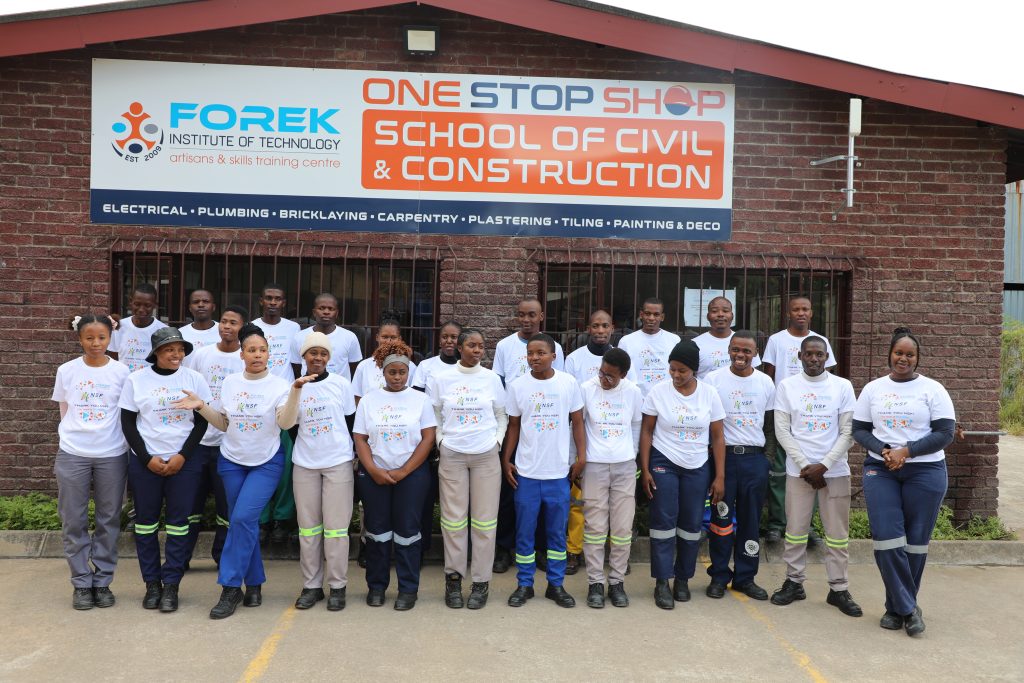The landscape of post-school education continues to evolve across the globe as nations unite for one goal: to partner and share best practices in education and research. A United Nations Educational, Scientific and Cultural Organization (UNESCO) science report states that one in four scientific articles produced around the world was co-signed by a foreign collaborator in 2014, compared to one in five a decade earlier. As a developing country, South Africa is no different, as it positions itself firmly regarding innovations that transform higher education and post-school training.
In a recent trip to Eastern Europe, the Department of Higher Education and Training (DHET) Director-General, Dr Nkosinathi Sishi, led a delegation on an international visit to review and strengthen the current international partnerships related to higher education and post-school training. Central to the visit is the area of international scholarships that offer hundreds of South African youth an opportunity to pursue studies abroad. The National Skills Fund (NSF) played a crucial role in these discussions as it supports skills enhancement for the youth, both locally and internationally.
So, within the advancing era of new knowledge, where does South Africa stand in the debate? Each year, several European countries issue a quota of scholarships for foreign countries to nominate eligible students. South Africa is among 70 countries worldwide participating in these nominations, sending qualifying students to study scarce and critical skills required by the economy. There are existing bilateral agreements with Hungary, Russia, and China, which have been funded through DHET and supported by the NSF since 2013.
These host countries have well-established academic disciplines. Several students in Russia are studying nuclear medicine, nuclear energy, cyber technology, geophysics, and aviation. Belarus is an agricultural community, and most of its federal universities offer this discipline and related technologies as specialities. The delegation also visited Budapest, Hungary’s renowned veterinary school. The university is the oldest in the region and continues to train South Africans in this discipline. DHET assessed best practices in accreditation, curriculum development, and professional registration during the working visit. The evaluation was key as the DHET plans to open a veterinary school at the University of Fort Hare.
Financial constraints faced by government institutions have resulted in DHET and NSF admitting fewer students and failing to meet the quotas offered by host countries. Hungary, for example, has over 100 students studying various qualifications, but the target of 300 nominations could not be met due to decreasing allocations.
The National Development Plan (NDP) 2030 requires that South Africa produce over 3,000 PhD graduates by 2030. On average, DHET seeks to send over 1,000 students abroad to achieve the set national targets. This programme seeks to support more master’s and PhD degrees in various research fields. A call to the NSF has been made to provide more funding support to achieve these targets. It became increasingly apparent that scholarships should not be confined only to research areas but should include vocational training opportunities for students. An opportunity for exchange programmes for lecturers also exists. The timing is fortuitous as the Minister of Higher Education, Science and Innovation, Prof Blade Nzimande, recently launched the Post-school Education and Training National Plan, ensuring an integrated and inclusive post-school training platform.
In a separate session with the students, persistent challenges included the lack of student support upon arrival in the host countries. DHET is responsible for establishing a fully comprehensive scholarship structure, including necessities such as medical aid, mental health support, mentorship, and workplace placement for students upon completion. The department has begun talks with the embassies of the host countries, requesting that companies host graduates for internships and employment. Existing alumni statistics for international scholarships show that around 55% of these students are employed. Those not in employment have returned abroad to further their studies.
As economic pressures mount, around 12 South African missions have closed in Eastern Europe, leaving Hungary and Russia responsible for caring for students in countries such as Serbia, Ukraine, Belarus, Bulgaria, and Croatia. This emphasises the need to strengthen comprehensive support. The finalisation of the placement of one educational attaché in Europe, with an additional one in the Asian region, is now critical.
In Russia, the geopolitical landscape differs greatly, with 11 different time zones limiting the effective implementation of the mission’s mandate in Moscow. There are over 500 South African students in Russia, some near the Ukrainian border, studying nuclear engineering, aviation, agrisciences, medicine, and more. Although most students are funded by the Free State and Mpumalanga provinces, and a smaller portion is funded by DHET, their challenges are significant.
The director-general led a session with His Excellency (HE) Mr Mzuvukile Maqetuka, the South African Ambassador to Russia. The meeting included students who expressed concerns about delays in verifying medical degrees obtained in Russia by the South African Qualifications Authority (SAQA) and registration with the Health Professions Council for South Africa. The director-general emphasised the need to engage with SAQA to fast-track verifications for international students. It is important that DHET and the provinces form a committee structure to address the challenges faced by students in Russia, especially during times of persistent military tensions. The changing environment also necessitated a request by HE Maqetuka that DHET and NSF consider placing two attachés in Eastern Europe, with one for Russia due to its vast geographical footprint and that Belarus is also part of the mission’s mandate. A second attaché will ensure that students in North, South, and Western Europe receive support.
The geopolitical environment in Europe has prompted countries and universities to rethink international collaborations while ensuring effective partnerships with several African countries. This is an opportunity for South African students to become global change-makers.
One success story is a student in Russia who is pursuing a PhD in cybersecurity. The student previously interned at Google while earning a master’s degree in Spain and, as such, has received an employment offer from Interpol.
DHET continues to establish agreements with several universities in Hungary and Russia where synergies of integration exist. One such collaboration will be with the BioTech University in Russia. More opportunities with new host countries, such as Croatia, Ireland, Colombia, and Japan, are also being established in collaboration with the NSF, its funding partner for the programme, to strengthen efforts to produce competent candidates.
Picture: ShutterstockThe article was written by Sandisa Maqubela, Deputy Director: Bursaries at the National Skills Fund, following the visit of the department to Eastern Europe from May to June 2023



